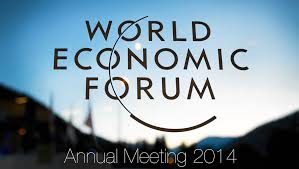The World Economic Forum has said that the addition of 21 new sites to its Global Lighthouses Network, a community of world-leading manufacturing facilities and value chains using Fourth Industrial Revolution (4IR) technologies to increase efficiency and productivity, in tandem with environmental stewardship boost sustainability. It said that by deploying advanced technologies such as robotics and artificial intelligence (AI) in the production chain, more than half of all factories are making an impact on environmental sustainability through their 4IR transformations. A consumer healthcare company, for example, coupled advanced controls with green technology to deploy a sensor-fed automated system to cut energy consumption, resulting in 25% less energy consumed and an 18% reduction in CO2.
The Lighthouse network and its 90 sites are a blueprint for adapting to technology, improving processes and developing workforce skills to scale across the production chain. From pharmaceuticals and medical products and consumer packaged goods to a broad range of advanced industries, these diverse organizations spanning over 75 regions are demonstrating how 4IR technologies can increase profit, with a positive impact on the environment. Among the 90 Lighthouses, three are receiving a new designation, Sustainability Lighthouses, factories and value chains achieving sustainability and productivity breakthroughs. A new report, Global Lighthouse Network: Unlocking Sustainability through 41R outlines how manufacturers accomplished these results.
“As discussed at the Forum’s Sustainability Development Impact Summit last week, increased global concern for environmental impact has made sustainability a must-have to maintain business viability. The Sustainability Lighthouses make it clear that by realising the potential of 4IR technologies in manufacturing, companies can unlock new levels of sustainability in their operations and explore a win-win solution: greater operational competitiveness while simultaneously making commitments to environmental stewardship, leading in a cleaner, more sustainable future as a result,” said Francisco Betti, Head of Shaping the Future of Advanced Manufacturing and Value Chains, World Economic Forum. Enno de Boer, Partner and Global Head Operations Technology, McKinsey & Company and Global Lead of its manufacturing work, said: “Lighthouses have achieved a sustainability breakthrough. Companies no longer have to choose competitiveness or sustainability because smart manufacturing lets them achieve both. Fourth Industrial Revolution technologies – think artificial intelligence, robotics and the internet of things – amplify human capability and technological innovation to accelerate sustainability while also strengthening competitiveness. From using advanced analytics to predict exactly the inputs and outputs needed for a manufacturing process to augmented reality that simulates a production line so machines can be operated remotely, Lighthouses are reducing resource consumption, waste and carbon emissions, while increasing productivity and profit – all at once.”
The goal of the Global Lighthouse Network is to share and learn from best practices, support new partnerships and help other manufacturers to deploy technology, adopt sustainable solutions and transform their workforces at pace and scale. The extended network of “Manufacturing Lighthouses” will be officially recognised at Global Lighthouse Network Lighthouses Live on 29 September. The event will feature CEOs and innovators focused on scale-up entrepreneurial solutions to tackle global talent shortages, the climate crisis and advancing sustainable development.

